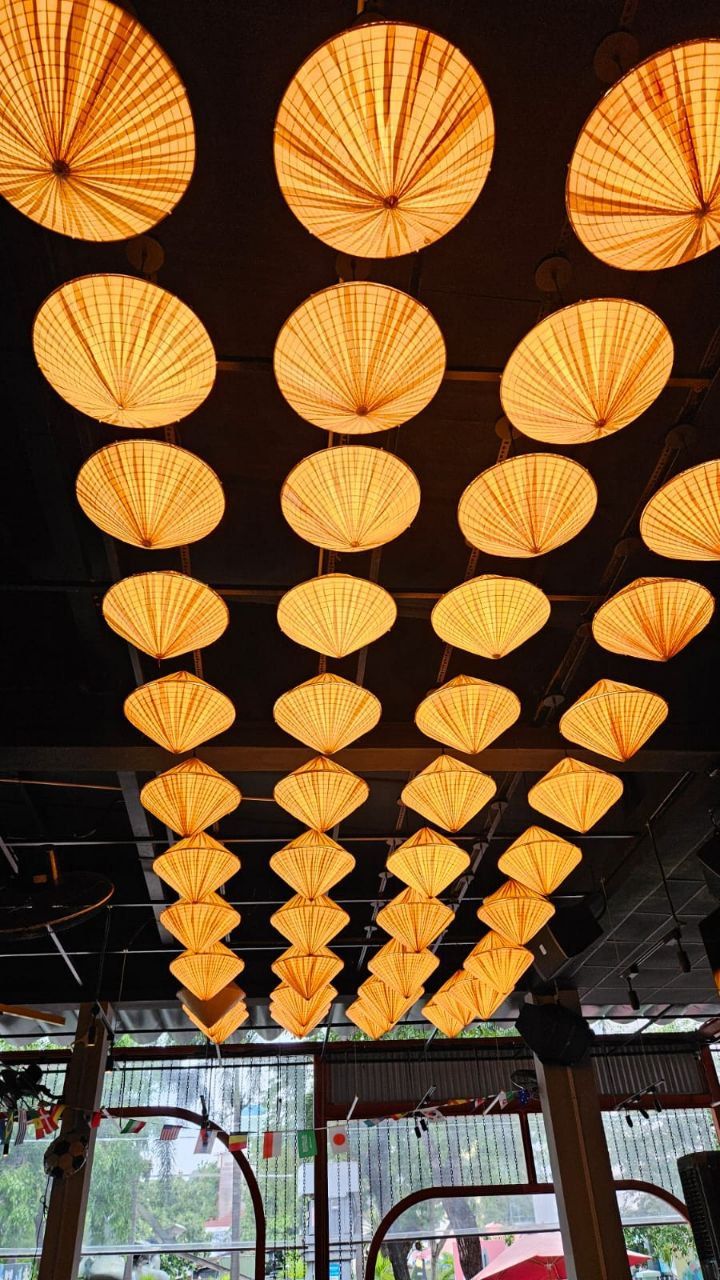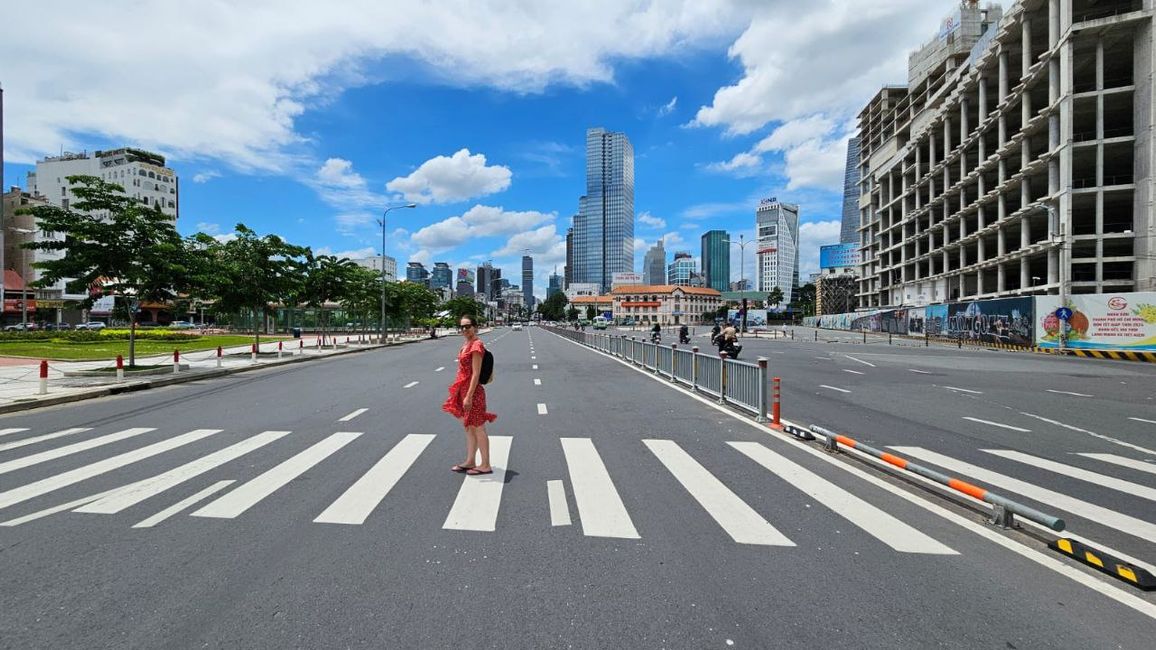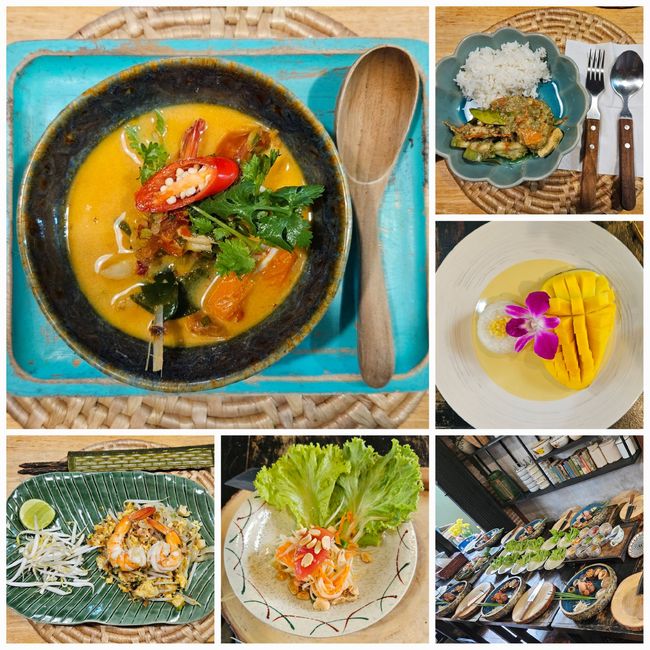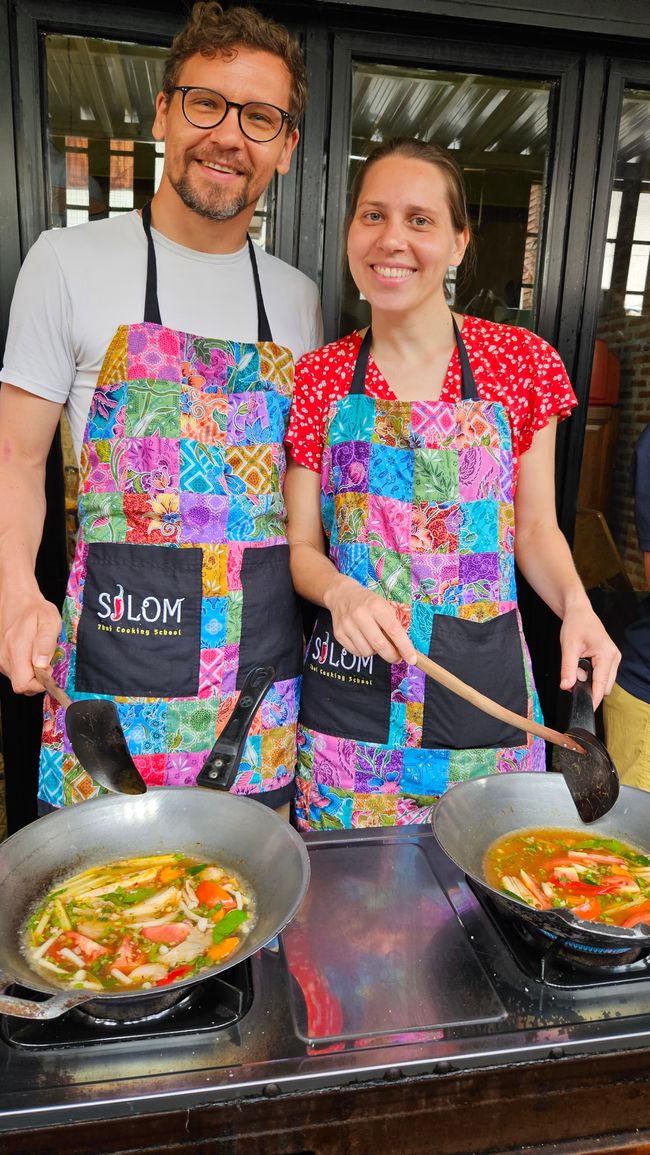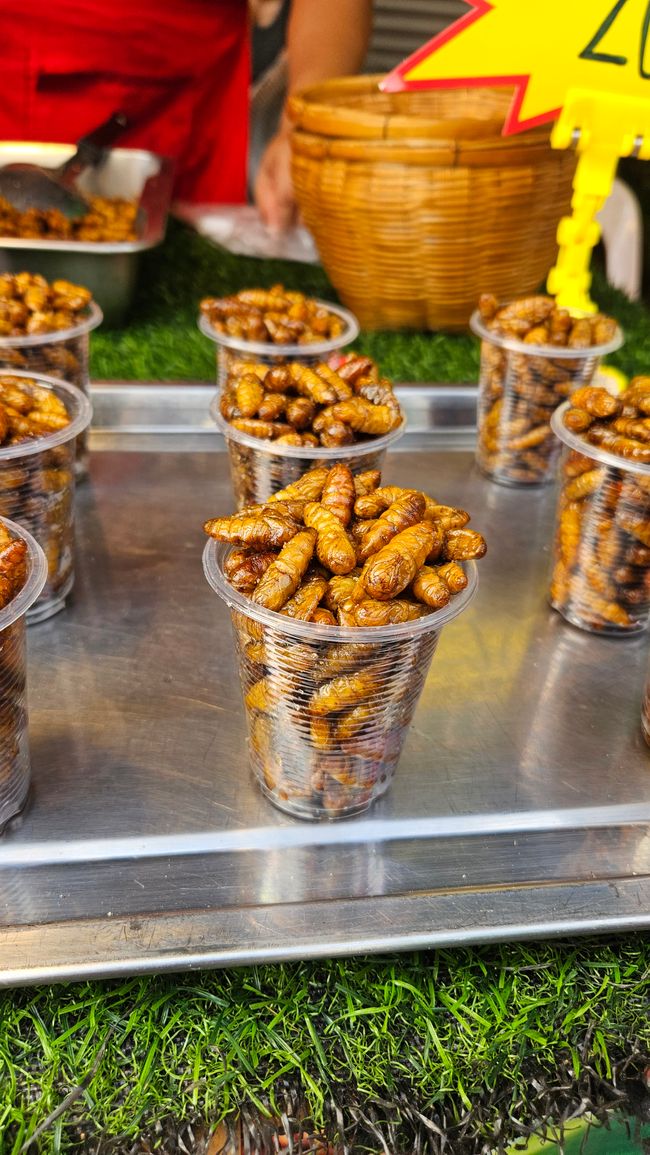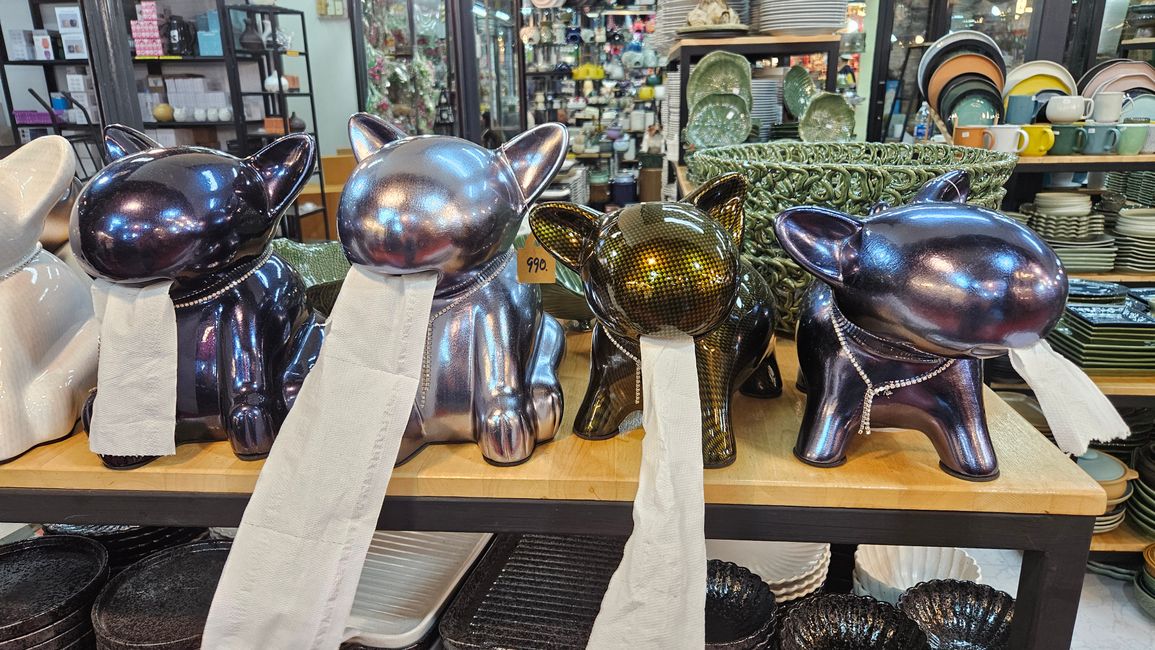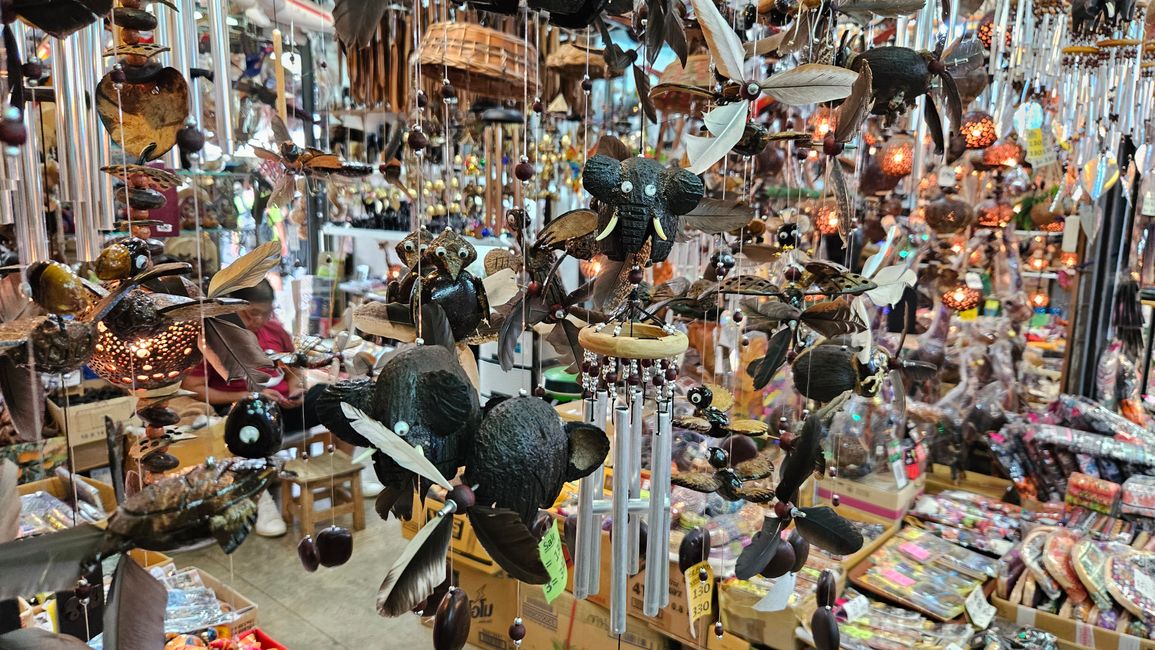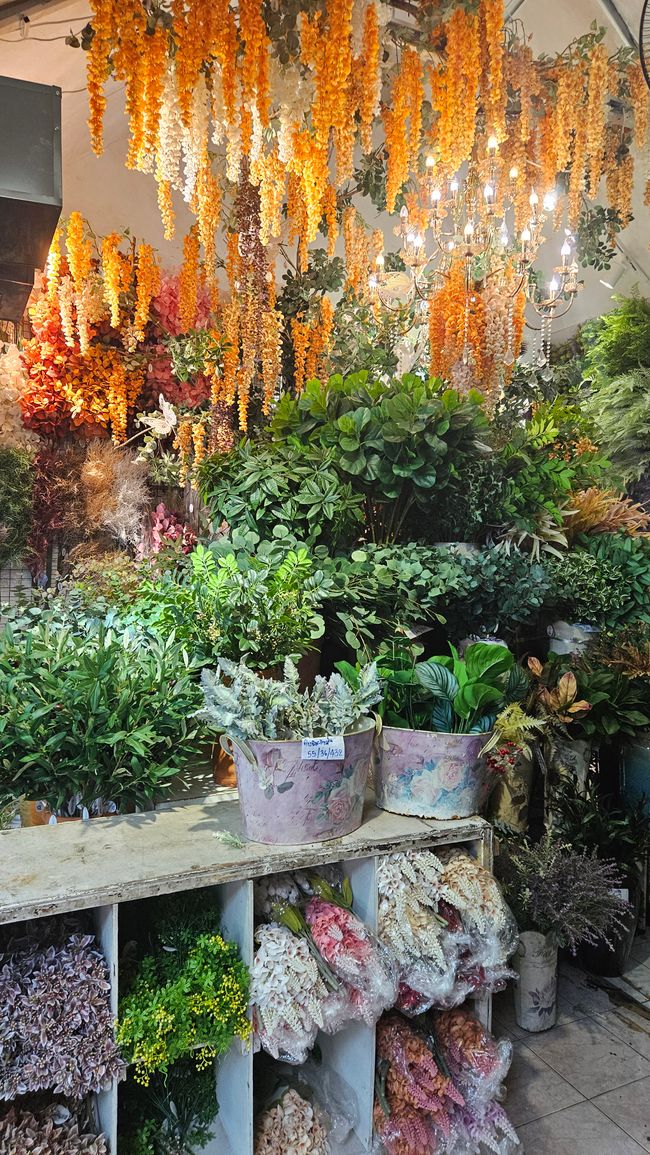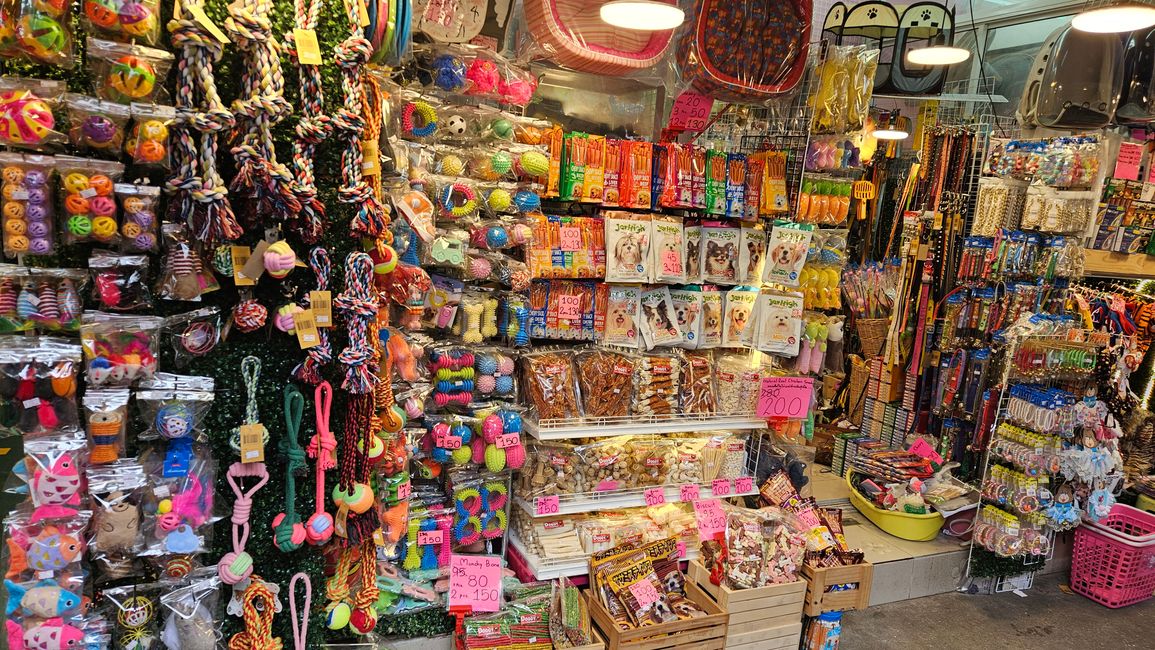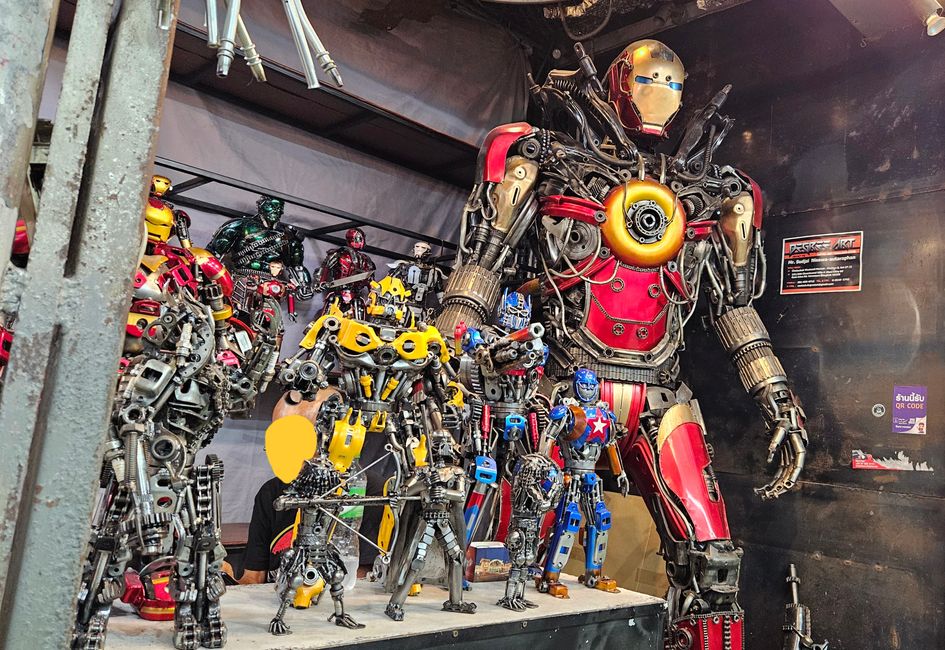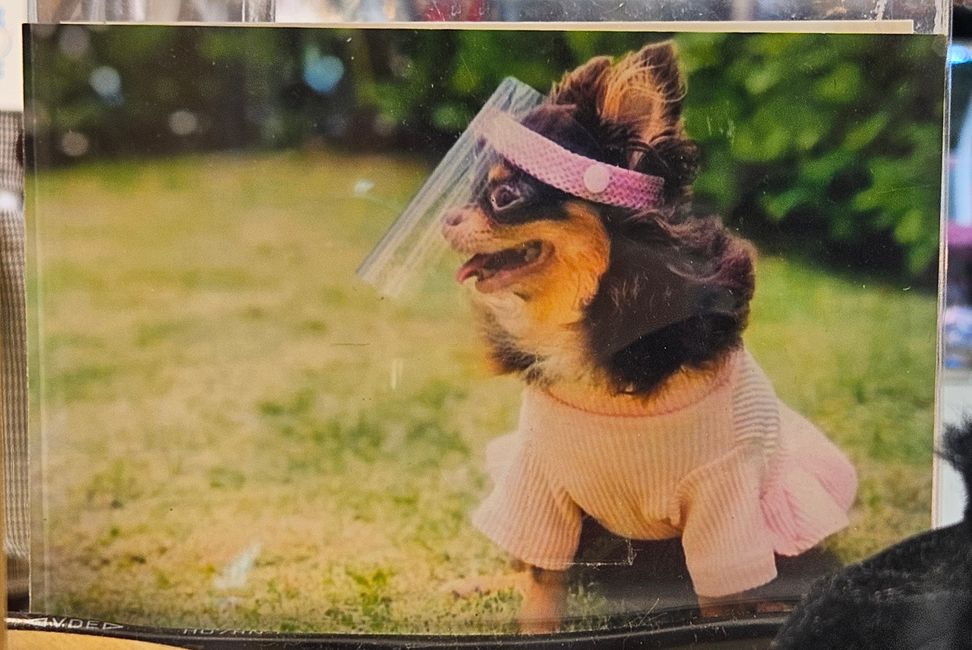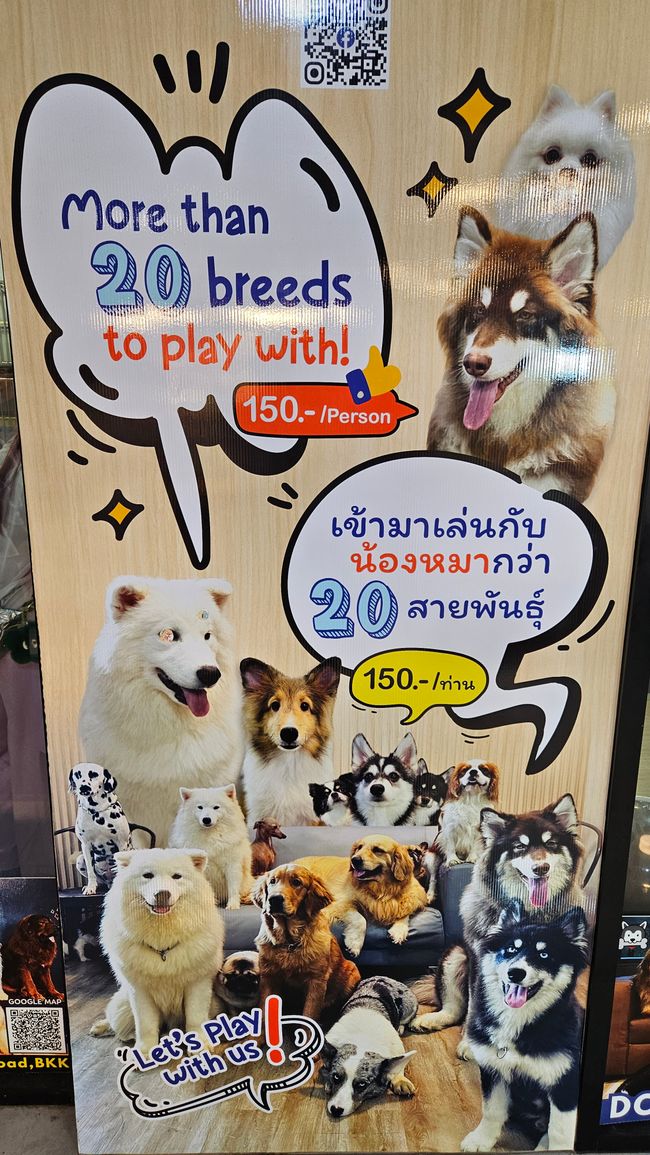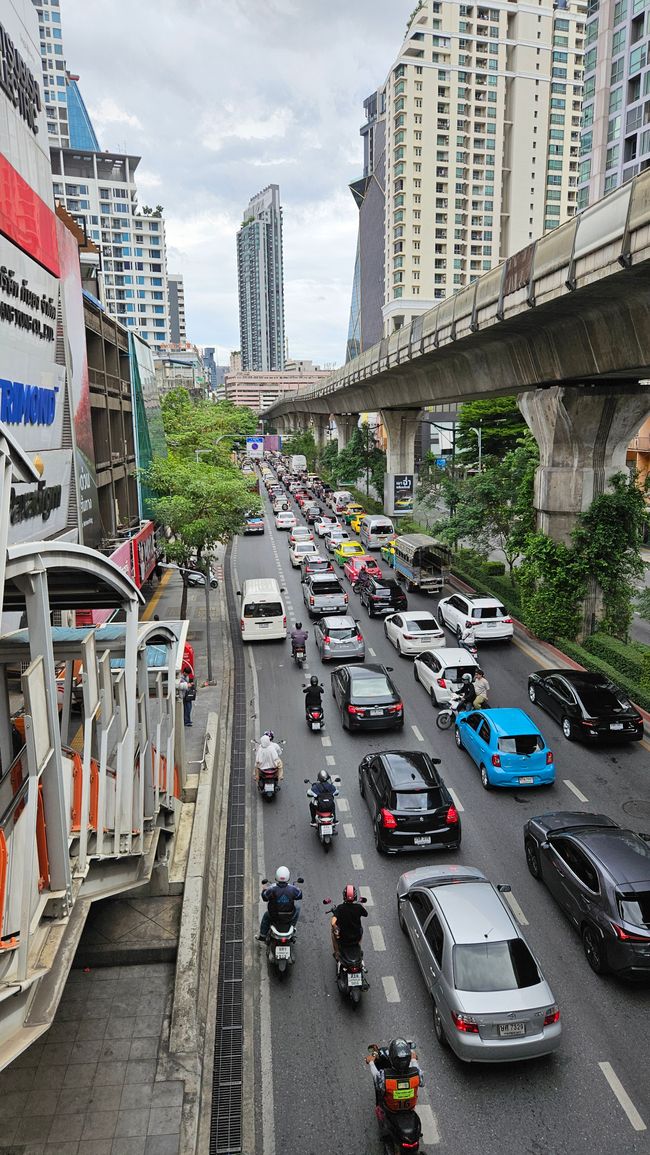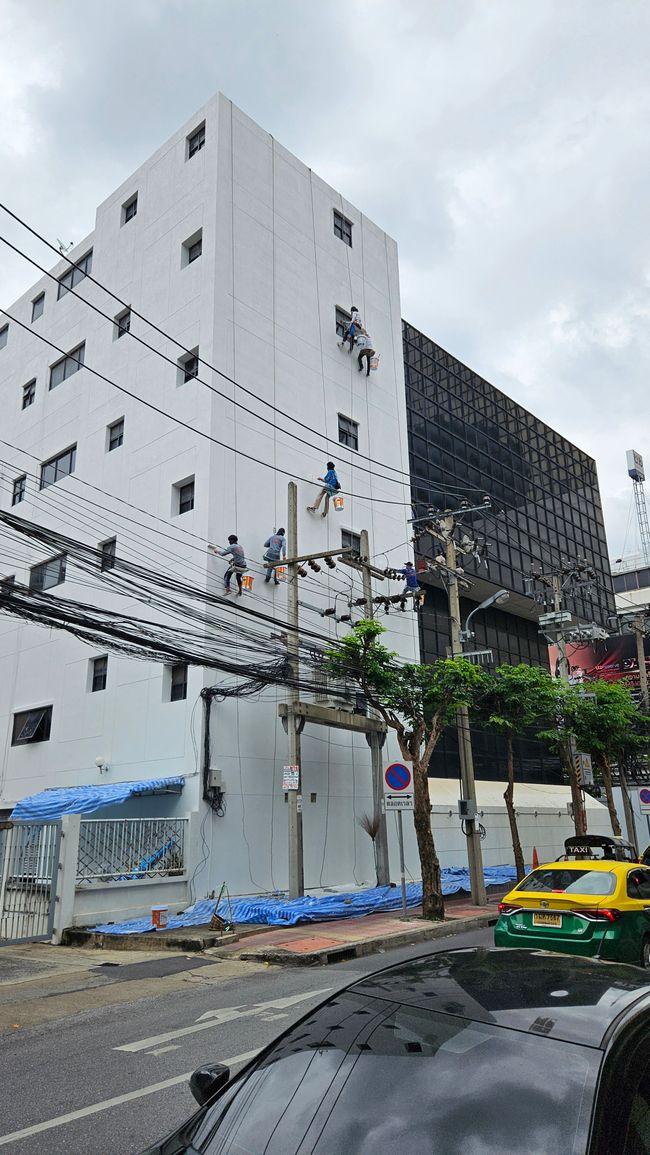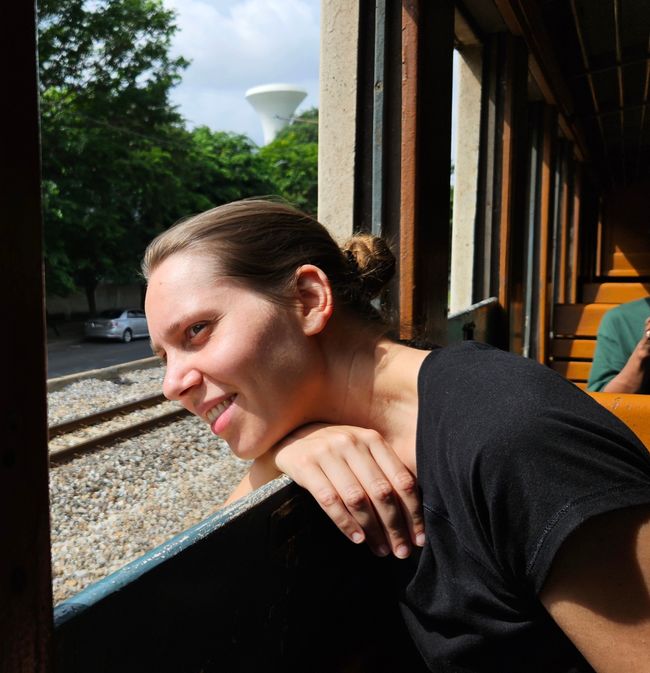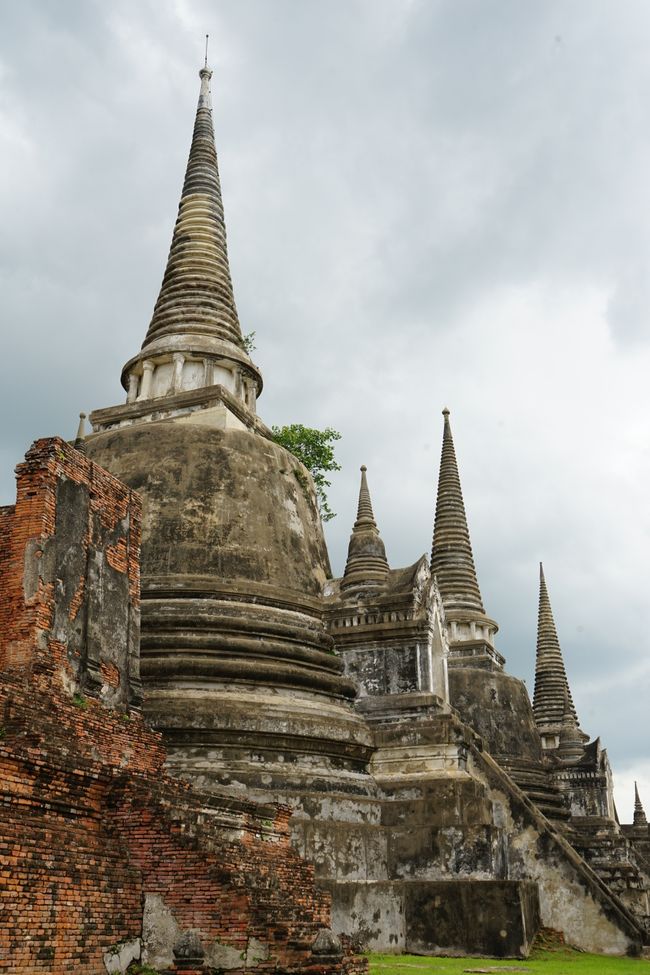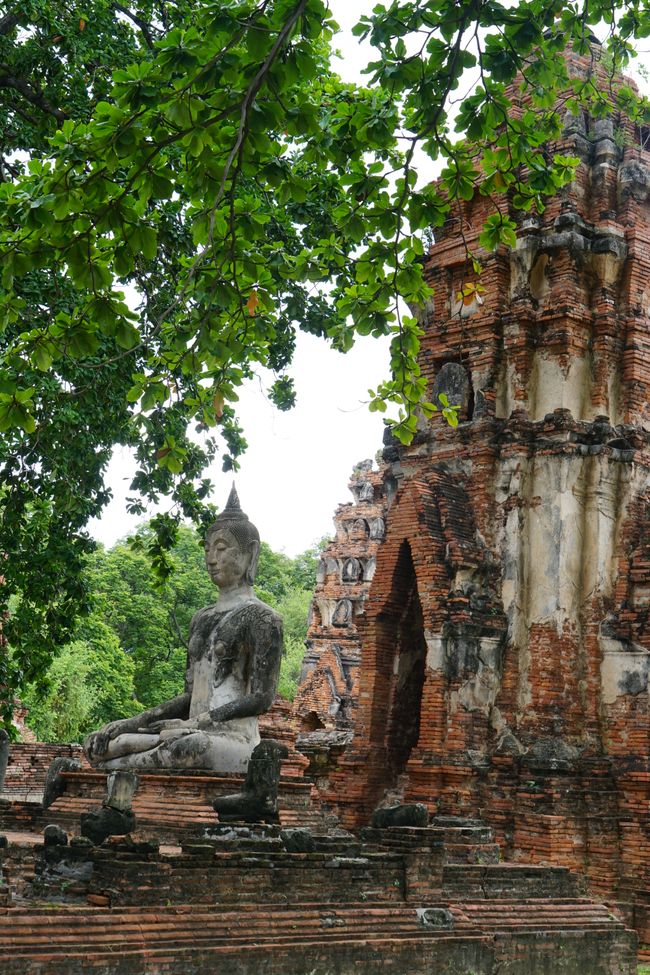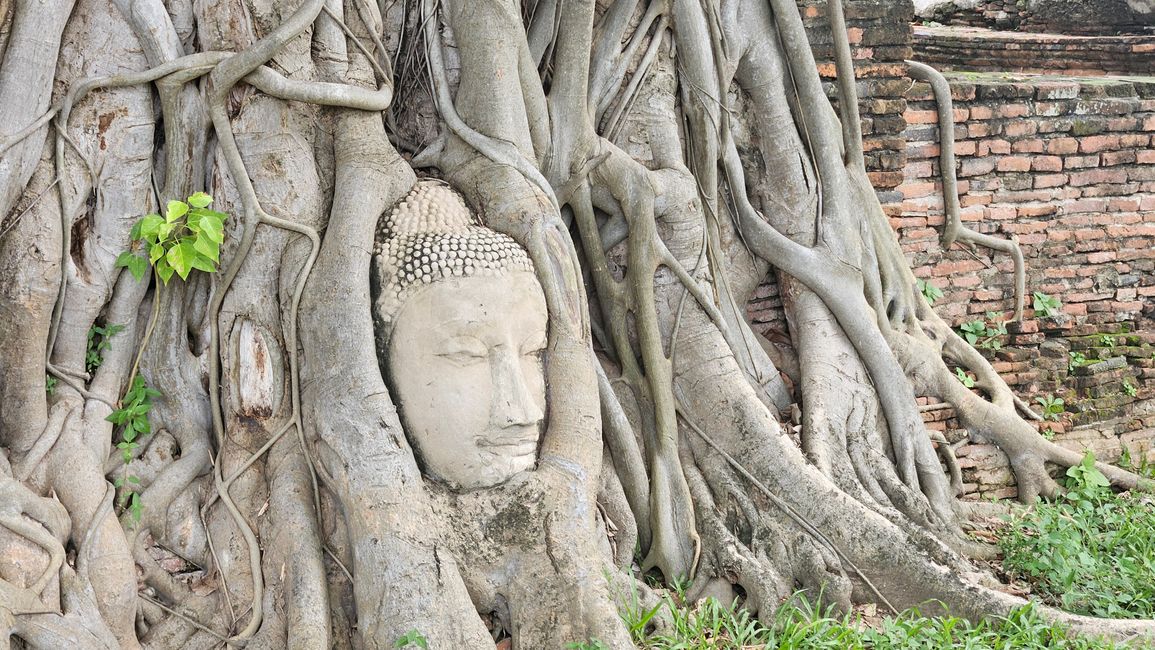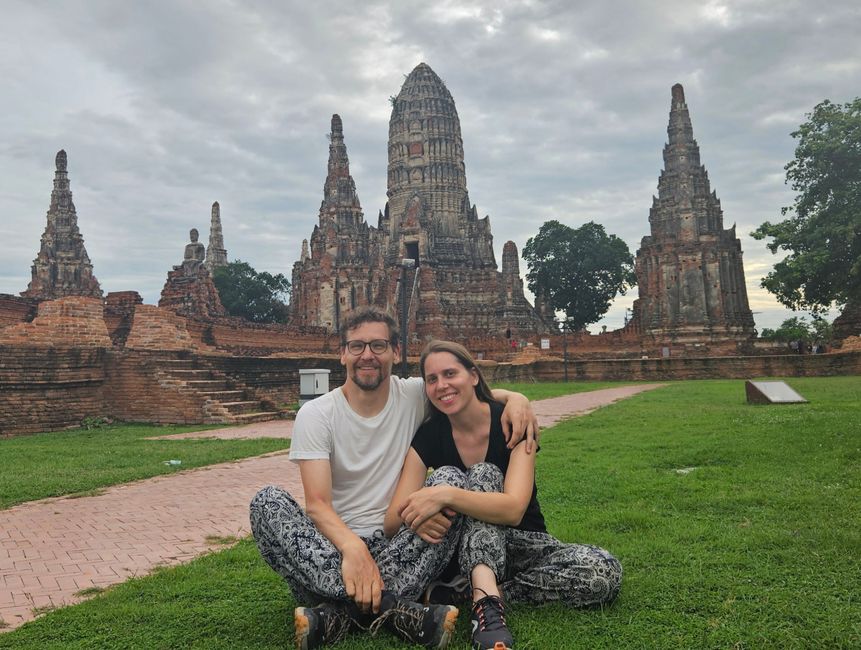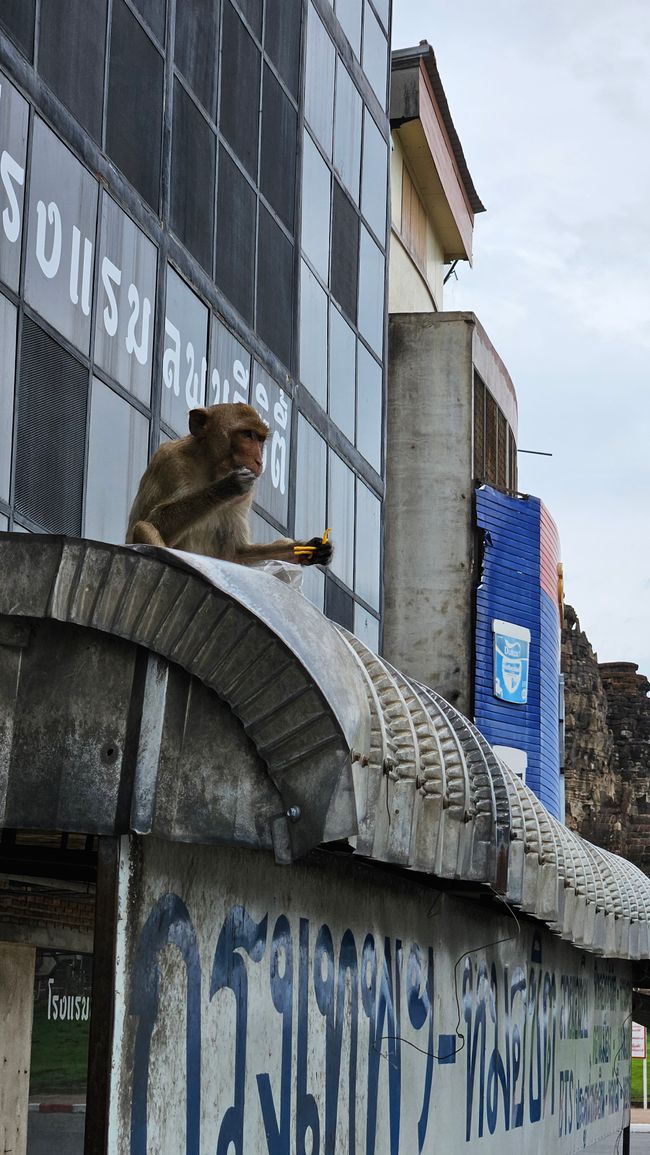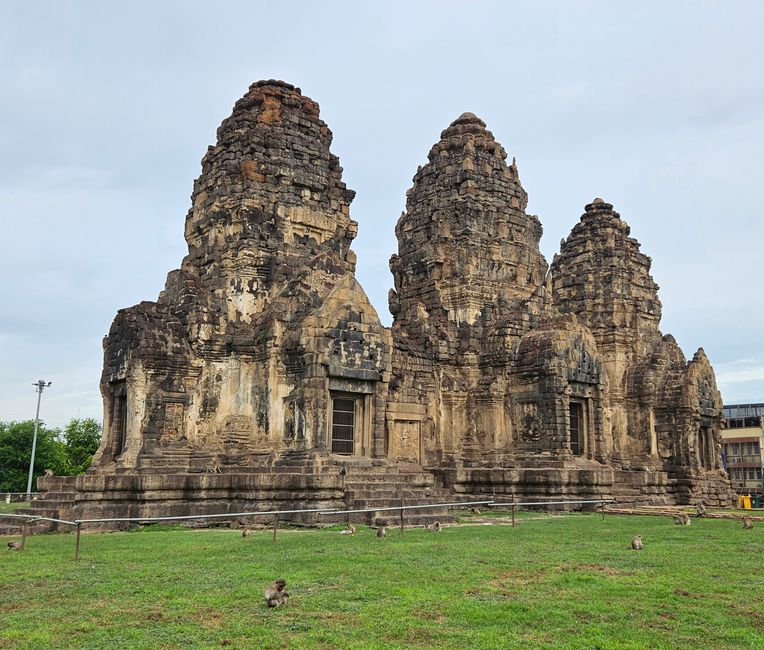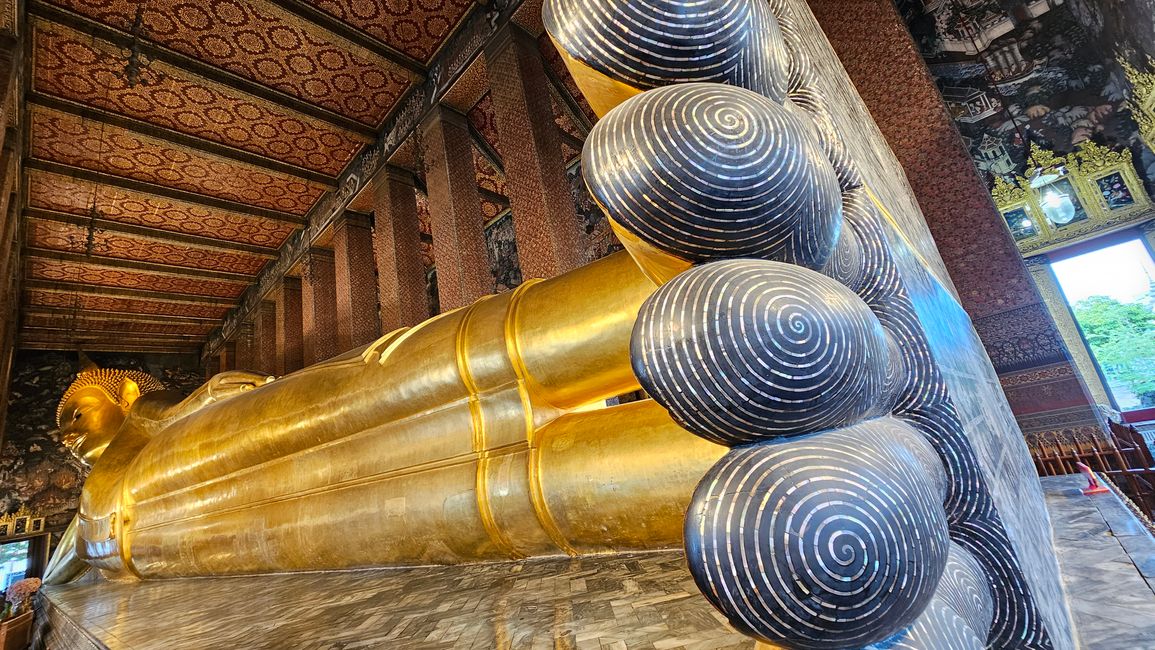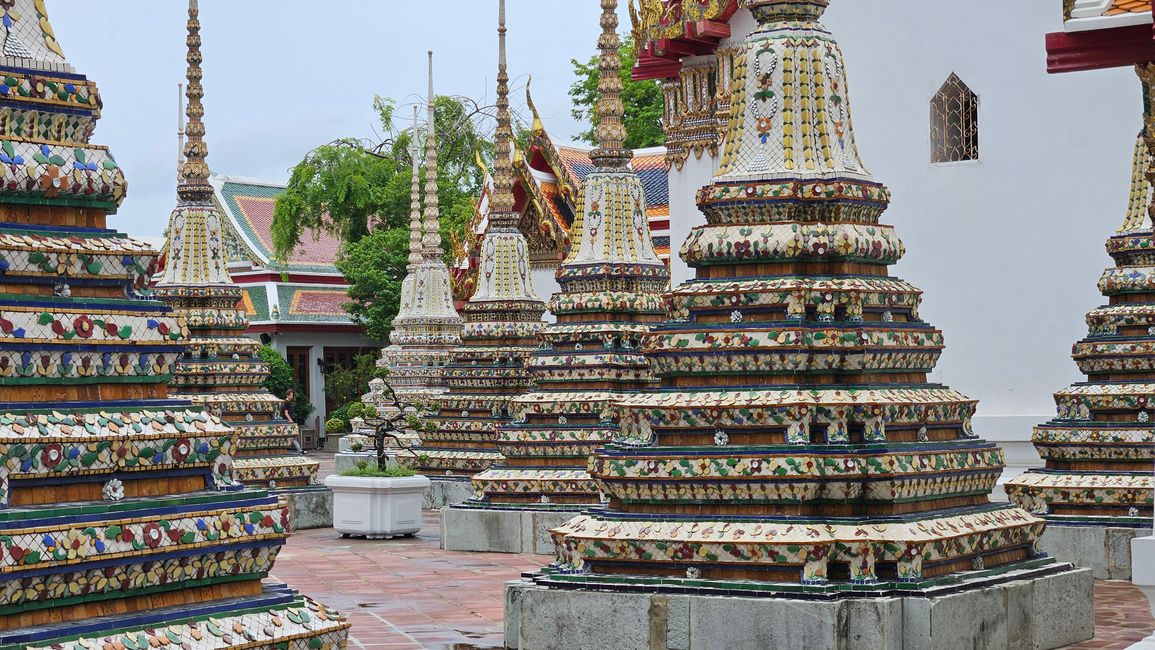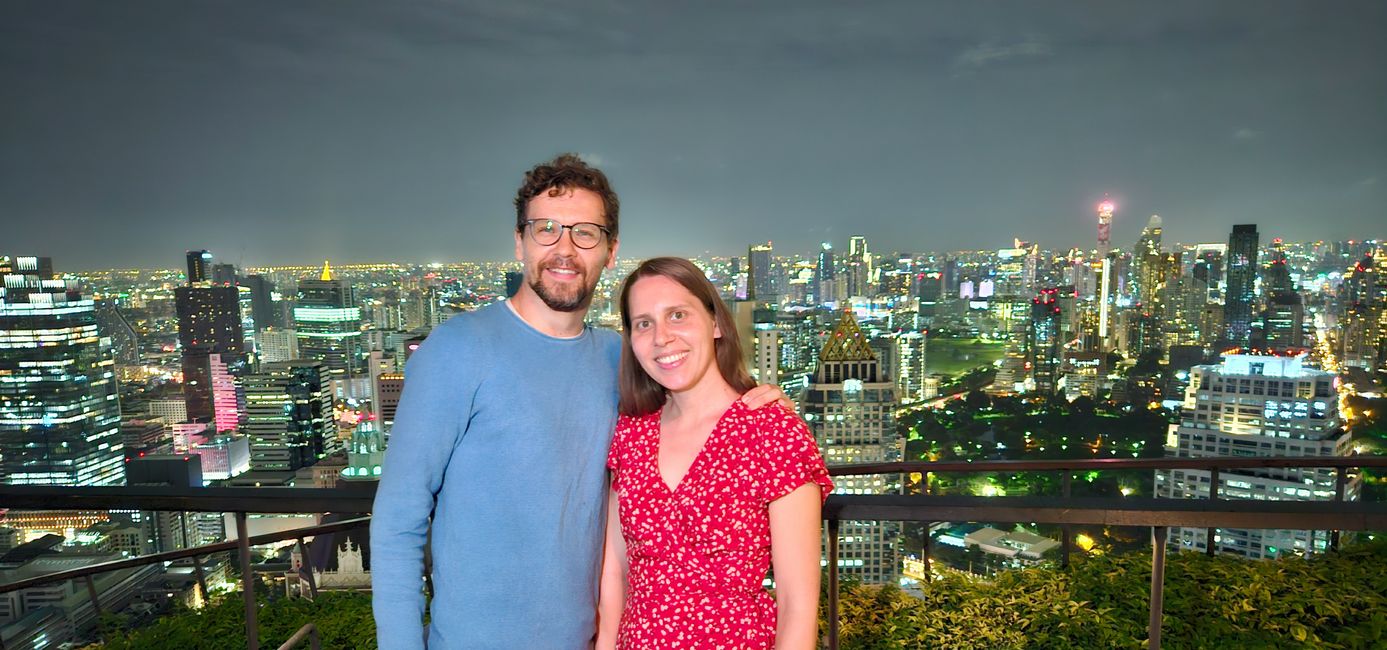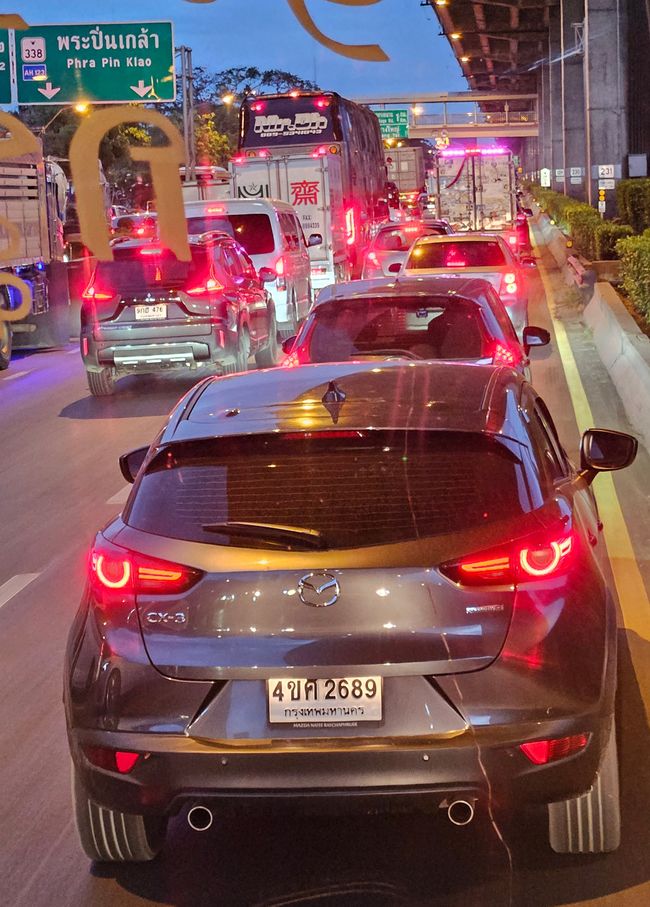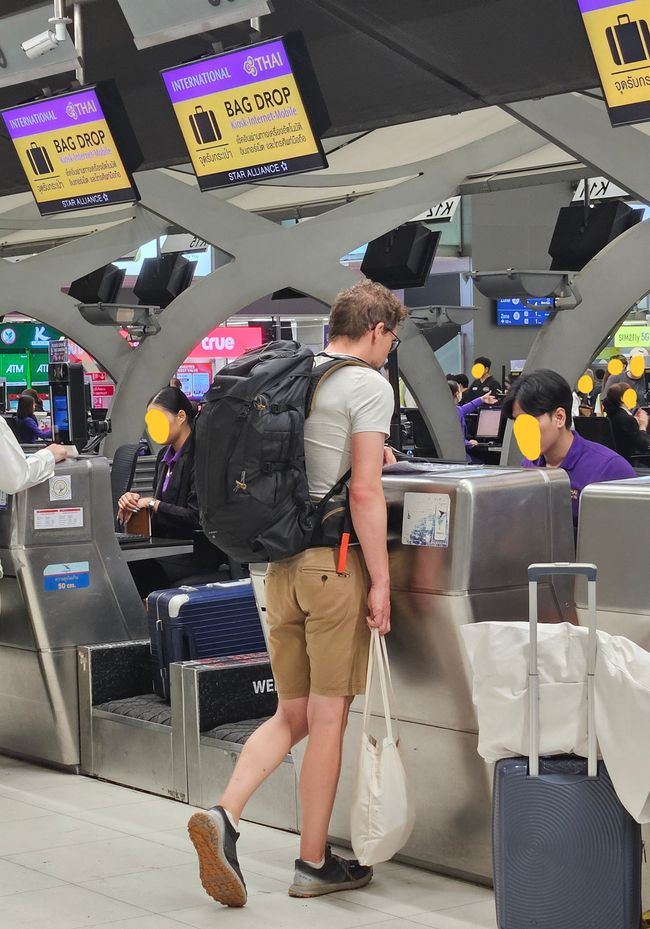Bangkok
Eldonita: 12.08.2024
Abonu al Informilo
After a 9-hour bus ride, we finally arrived in Bangkok, the mega-city and capital of Thailand. On the day of our arrival, we were quite exhausted, so we only had a quick look at Khao San Road, where a continuous stream of clothes, massages, grilled crocodile meat, various fried insects (maggots, cockroaches, scorpions, spiders, ...), buckets of alcohol, and much more are offered.
The next day, we visited the Chatuchak Weekend Market, the first market that actually delivered on what the travel guide promised: you can spend at least half a day there. We had seen everything from food to clothing, bags, and shoes to everyday items dozens of times at the other markets. However, the Chatuchak Weekend Market also features some more unique items, such as antiques or plastic plants. In the plastic plant section, you can even watch the staff adding the final touches of color to the plastic plants to make them look more realistic. There are also all kinds of pets (dogs, cats, rodents, fish, ...) or 'pets' (snakes, turtles, spiders, ...) available for purchase, or you can pay around €4 to go into a dog cage and pet the 20 different dogs for a day. Unfortunately, the treatment of these animals at the market is far from humane, so I won’t be posting any photos on my blog to avoid promoting that. I found the section with accessories for dogs incredibly funny – it’s amazing what ridiculous things you can dress your dog in!
In a cooking class, we learned to make five typical Thai dishes: Tom Yam, Pad Thai, papaya salad, green curry, and mango with sticky rice. We were in a group with 4 Danish and 4 Korean participants. The recurring communal 'Aaaah' from the Koreans whenever they learned something new led to a laughing fit among us Europeans during the course. I was crying from laughter.
Additionally, we took trips to Ayutthaya and Lop Buri from Bangkok. It’s important to know that Bangkok did not exist during the Siamese-Burmese War in the 18th century; Ayutthaya was the capital of Siam (which is what Thailand was called back then) and Lop Buri was repurposed as a second strategic capital. Ultimately, the Burmese could not be stopped; Ayutthaya was destroyed and abandoned, and Bangkok was built as the new capital instead. The visit to the National Museum in Lop Buri was interesting, where we learned why the capital Ayutthaya was built about 100 km from the sea instead of right by the sea with a harbor: Ayutthaya used to be by the sea. Due to the dropping sea levels in the following years, the city has gradually moved further inland. Even Lop Buri used to be by the sea and is now about 150 km away from it.
Lop Buri and Ayutthaya are two temple cities like Angkor, but much smaller, and the restoration process is significantly advanced, which unfortunately means a large portion of charm has been lost. The famous Buddhist face embraced by a tree in Wat Phra Mahathat in Ayutthaya and the monkey temple Prah Prang Sam Yot in Lop Buri are particularly well-known.
Sadly, our first last day together had come, where we still had time to visit Wat Pho in Bangkok, where a giant reclining Buddha lies, and have dinner in a high-rise restaurant. Afterwards, we struggled for over an hour in a taxi through Bangkok's traffic to the airport, and then it was time to say goodbye...
While Markus went through the usual airport protocol until departure, I took the Skytrain back to the accommodation. And before Markus even arrived in Germany, I was already in another place.
Abonu al Informilo
Respondu
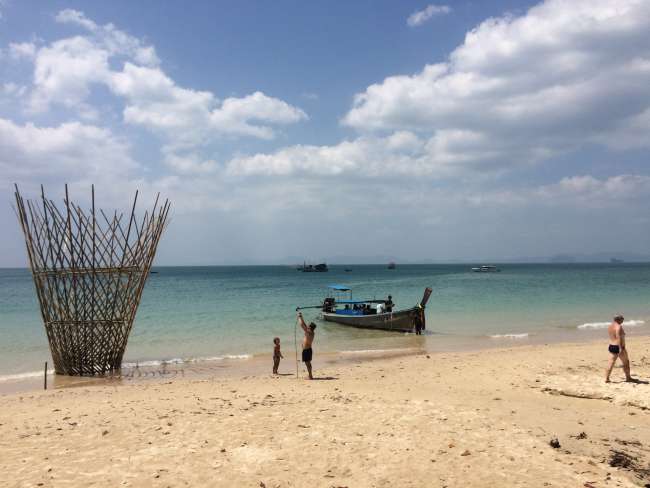
Vojaĝraportoj Tajlando
